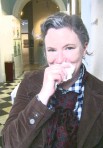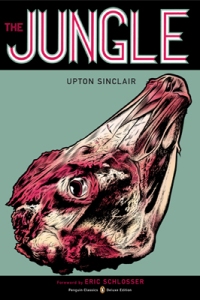
I often tell people that my work is completed when a viewer experiences it and it’s this process that I find truly profound. This blog and my daily social media activity is part of this process – it’s the theatre geek in me – part story teller, part show off. I’m on a mission however to use it for good and not evil.
We are bombarded with imagery and information today and it is having an impact on our memories, perhaps changing us in ways that we as yet can’t comprehend. We are interpreting the world through technology in fragments; things like Tweets, videos and skype help with this fragmentation. As we evolve I believe that we try to tie these fragments together to make our own narratives. Our narratives are born from some ancient need to subscribe a story to our existence and give meaning to our emotions.
I think we seek to match feelings with image. The moment a moose comes into view in my backyard my pulse races. I once sat down in front of a Rembrandt portrait and I wept. Art sits inside this space. This intimacy between viewer and object/event is a sacred space. The virtual world however forces a kind of distance on us, making this space more of a netherworld than a sanctuary.
I think this distance is where, for better or worse our media has ensconced itself. This little space between the act of looking and what we are looking at and that the ‘what’ isn’t ‘real’ is where many narratives that undermine our search for meaning begin. We want to find solace in this space but sometimes we find that we become part of a hysterical collective, one that is brilliantly manipulated by those who have a superior understanding of how to use the technology.

In the book The Jungle by Upton Sinclair the main character Jurgis, who has suffered at the hands of early 20th century capitalism rivalling God’s interaction with the Bible’s Job, finds solace in reading the news paper. Yes, capitalism is in fact a worse judge than God. His English is poor but there are enough three word headlines, easy to understand captions and pictures to allow him to transport himself on Sunday away from his squalid and endlessly cruel existence to places all over the country. It is the only joy he finds in a world that has taken his love Ona, and their son away from him; both die from injuries sustained while working and living in Packingtown, the meat processing area of Chicago in 1906.
Jurgis’ reaction to the imagery and the media’s messages distract him but they also bring him pleasure. In researching what he might have been reading at that time I found that it could have been the Japanese Russian conflict, railroad and road building, the beginnings of nature conservation and the validation of several unions. America had a narrative and the media stoked it, shaped it and helped it along; it was a country being built upwards toward prosperity and exciting new things for everyone (well, that was the promise). It was generally good news and put his heart to rest about why he ever came to the hell hole of Chicago to begin with.
It’s what the media does best, using imagery to harness a story being told and many times this becomes a sharp treatise on our humanity or lack there of. Working online and stitching our narratives together through various platforms is endlessly filled with tensions regarding our ethics, our identities and our feelings of self worth. While artists are trained to put themselves into a target range, a person who is generally not used to public exposure can find the experience horrifying. Jurgis’ narrative was told to him, spelled out in ink and paper and he attached himself to it and survived by believing in it. Now people create their own narratives, and unless you are skilled at understanding this space of real/actual and/or manipulative processes you can easily get lost. Most artists I know can navigate this space as we are adaptive to the viewer/viewed relationship (whether we like the evolving ideas or not).
I can’t help but think of how someone like Jurgis who read the newspaper to find meaning for his suffering would navigate Facebook; the colliding narratives might reinforce the brutality and unfairness of his world. Or would it? I would like to think that there are still ways of using this space to empower, heal, help and celebrate who we are and that the Jurgis’ of this world stumble upon them. I have high hopes that they do.
